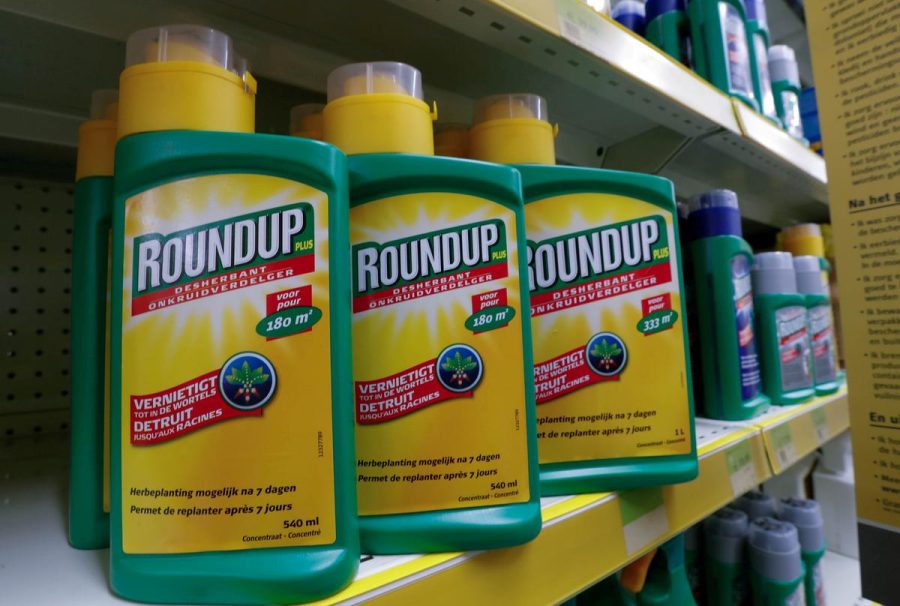Researchers at UC San Diego School of Medicine rebuked the chemical company Bayer’s dispute of a recently published study linking Roundup, a glyphosate-based weed killer made by Bayer, to the development of liver disease in humans. The company initially contended that the findings were hollow and disregarded the possibility that members of the studied group could have metabolic disorders.
In the initial study, the UCSD team examined the urine samples of patients with nonalcoholic fatty liver disease, or build up of excess fat in the liver that’s not caused by alcohol, and those without it over their year-long study of 93 individuals.
The results showed that glyphosate levels were significantly higher in patients with NAFLD and that this was independent of underlying factors including age, ethnicity, and blood mass index. The team also noticed that the prevalence of NAFLD had increased since Roundup came into significant use beginning in the mid-1990s.
Professor Paul J. Mills, the first author of the paper and leader of the research team, told the UCSD Guardian that 80-90 percent of genetically modified corns and 60 percent of wheat are sprayed with glyphosate across the nation.
“[Glyphosate] goes down [into] water and soil … it is taken up by crops, chickens, cows and [goes] into the human body,” Mills said.
According to Mills, liver disease is often related to overconsuming alcohol, yet the increased case of NAFLD over the past decades caught Mills’ attention during a previous talk with his friends who work at hospitals. Mills looked into several animal studies in which animals were fed diets either including or excluding glyphosate. The results showed that the development of liver disease in animals was associated with the intake of glyphosate, commercially sold as Roundup.
“Animals were fed with [an] ultra low dose, which is lower than human exposure, and they get [liver disease],” Mills told the Guardian. Ultimately, these animal studies, which were cited in Mills’ paper, motivated him to launch a study looking at the effects of human consumption of glyphosate.
Shortly after Mills published his study, the chemical company Bayer rebuked the findings.
“While we are still examining this recently released study, the data indicates that the researchers failed to consider confounding factors including potential existing metabolic disorders in participants,” a spokesperson from Bayer said in a statement to the Times of San Diego
Bayer’s counter-argument was based on the possibility that a metabolic disorder may also contribute to NAFLD. To be diagnosed with a metabolic disorder, or a metabolic syndrome, a patient has to have at least three of the five conditions which basically fall under the four categories: obesity, diabetes, high blood pressure, and high blood sugar.
“I don’t understand their comment,” Mills told the Guardian. “We measured the subcomponents of the metabolic disorder. We did four of the five measures. The only thing we didn’t do is blood pressure.”
The Times of San Diego mentioned in their report that Bayer cited a statement from the U.S. Environmental Protection Agency which claimed that glyphosate posed no health risk if used properly. The company also stated that its pesticides were tested and abided to internationally accepted protocols.
Conversely, a quote on pesticides in general from the U.S. Food and Drug Administration website states that: “The FDA is continuously expanding its monitoring capabilities to fulfill its obligation to ensure that pesticide residues on or in domestic and imported foods do not exceed EPA tolerances.”
Mills, however, noted that the FDA has continued to increase the tolerance level in order to accommodate the build-up of glyphosate.
“[The] FDA increases what it says to be safe,” Mills said.“Monsanto has a strong presence in FDA … there are lots of bias and dishonesty.” Monsanto is the original Roundup producer and was acquired by Bayer in 2018.
Mills referred to Merchants of Doubt, a non-fiction book which discussed how government, scientists and merchants collaborated to obscure the truth of tobacco smoke and global warming.
“It’s the same thing here,” Mills said.
Mills plans to do a follow-up study on the condition of the liver when patients are fed with organic food over the course of several months.
“Be mindful of what you eat,” Mills said, stressing the importance of consumer knowledge.
In a follow-up email, Mills informed the Guardian that UC President Janet Napolitano had suspended the use of glyphosate herbicide across all 10 campuses, effective June 1, 2019.
According to the official statement on the decision released by the UC Office of the President, the temporary ban is to address “concerns about possible human health and ecological hazards, as well as potential legal and reputational risks associated with this category of herbicides.” The suspension was the result of advocacy by student group Herbicide-Free UC and Mosanto’s implication in multiple lawsuits.
Napolitano did not indicate when the suspension will be lifted.
Photo courtesy of Reuters.














